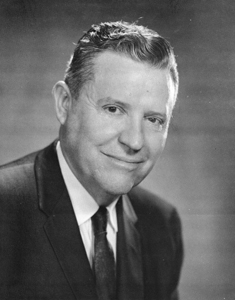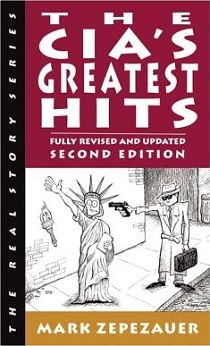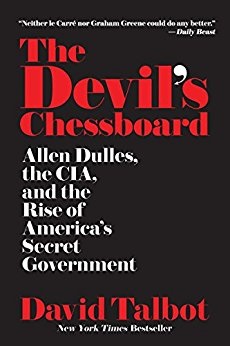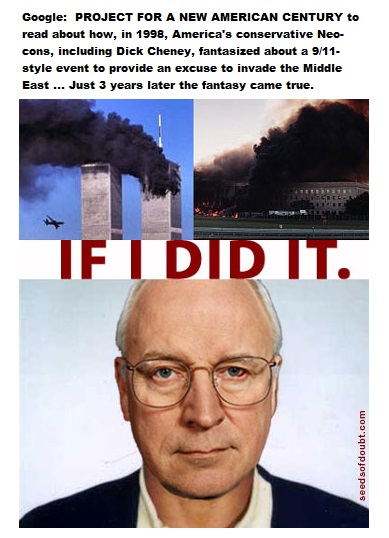|
The Senator who Suspected a JFK Conspiracy
Ralph Yarborough was a Texas Democratic politician who served in the United States Senate (1957 until 1971) and was a leader of the progressive or liberal wing of the Democratic Party in Texas. Yarborough was a very different kind of Southern senator. He refused to sign the Southern Manifesto opposing integration and supported national Democratic goals of more funding for healthcare, education, and the environment. In a state now famous for closeness between business interests and politicians (LBJ, George W. Bush), Yarborough combated the dominant industries of oil and gas, always pushing for these industries to assume their fair share of the tax burden. In 1963, on the day John F. Kennedy was assassinated in Dallas, Ralph Yarborough rode in the motorcade only two cars back from the presidential limousine. Yarborough was in the same convertible as Vice President Lyndon Johnson, Lady Bird Johnson, and secret service agent Rufus Youngblood. In several interviews, Yarborough voiced suspicions of a JFK conspiracy.
Yarborough's Suspicion of the Military-Industrial Complex "As we approached the city and then finally turned
down Main Street toward the Trinity River, the crowd increased as we got
to the heart of Dallas ... and one of the most enthusiastic crowds we saw in
any city we ran into in Texas on that tour ... that's on the
sidewalks. Now if you looked up, in the upper stories, I never saw a
single smile in any window I looked at. Some looked down ... it
looked like ... with dislike on their faces." "Had Kennedy lived, I think we would have had no
Vietnam War, with all of its traumatic and divisive influences in
America. I think we would have escaped that. I think the world would
have escaped the 50,000 odd Americans dead and 300,000 more wounded and
over half a million more hooked on dangerous drugs ... tropical diseases
... the divisiveness of that war that so many of the people thought
unjustified and unnecessary ... and that we shouldn't have been there ...
that split this country. Many of those things have lingered
on since."
Yarborough's Suspicion of Lyndon Johnson "There is the well-publicized story of Agent Rufus Youngblood, who reportedly threw himself on top of Vice President Johnson after the shooting began in Dealey Plaza.... Johnson, in a statement to the Warren Commission, mentioned the incident:
However, former Texas senator Ralph Yarborough, who was
sitting beside Johnson that day, told this author: 'It just
didn't happen.... It was a small car, Johnson was a big man,
tall. His knees were up against his chin as it was. There was
no room for that to happen.' Yarborough recalled that both
Johnson and Youngblood ducked down as the shooting began and that
Youngblood never left the front seat. Yarborough said Youngblood
held a small walkie-talkie over the back of the car's seat and that he and
Johnson both put their ears to the device. He added: 'They had it turned down real low. I couldn't hear what they
were listening to.'"
Yarborough's Suspicion of the Warren Commission Investigators "A couple of fellows [from the Warren Commission] came to see me. They walked
in like they were a couple of deputy sheriffs and I was a bank
robber. I didn't like their attitude. As a senator I felt
insulted. They went off and wrote up something and brought it back
for me to sign. But I refused. I threw it in a drawer and let
it lay there for weeks. And they had on there the last sentence which
stated: 'This is all I know about the assassination.' They
wanted me to sign this thing, then say this is all I know. Of
course, I would never have signed it. Finally, after some weeks,
they began to bug me. 'You're holding this up, you're holding this
up' they said,
demanding that I sign the report. So I typed one up myself and put
basically what I told you about how the cars all stopped. I put in
there, 'I don't want to hurt anyone's feelings but for the protection
of future presidents, they should be trained to take off when a shot is
fired.' I sent that over. That's dated July 10, 1964,
after the assassination. To my surprise, when the volumes were
finally printed and came out, I was surprised at how many people down at
the White House didn't file their affidavits until after the date, after
mine the 10th of July, waiting to see what I was going to say before they
filed theirs. I began to lose confidence then in their investigation
and that's further eroded with time."
Links: "We are not afraid to entrust the American people with unpleasant facts, foreign ideas, alien philosophies, and competitive values. For a nation that is afraid to let its people judge the truth and falsehood in an open market is a nation that is afraid of its people." --John F. Kennedy "Some staff members and commissioners of the Sept. 11 panel concluded that the Pentagon's initial story of how it reacted to the 2001 terrorist attacks may have been part of a deliberate effort to mislead the commission and the public rather than a reflection of the fog of events on that day, according to sources involved in the debate. Suspicion of wrongdoing ran so deep that the 10-member commission, in a secret meeting at the end of its tenure in summer 2004, debated referring the matter to the Justice Department for criminal investigation, according to several commission sources. Staff members and some commissioners thought that e-mails and other evidence provided enough probable cause to believe that military and aviation officials violated the law by making false statements to Congress and to the commission." --Washington Post, 2 August 2006 "At some level of the government, at some point in time ... there was an agreement not to tell the truth about what happened [on 9/11]." --John Farmer, Senior Counsel to the 9/11 Commission and Attorney General of New Jersey "I want to overthrow Saddam [Hussein]. Find me a way to do it." —President George W. Bush, speaking in the first National Security Council meeting of the Bush presidency on 30 January 2001, eight months before the World Trade Center attacks of 9/11, as told by Treasury Secretary Paul O'Neill, TV documentary, "Why We Did It" "They had a plan to go to war [with Iraq], and when 9/11 happened that's what they did; they went to war." —Senator Max Cleland, interview with Salon magazine, 21 November 2003 "As each day goes by, we learn that this government knew a whole lot more about these terrorists before Sept. 11 than it has ever admitted." —Senator Max Cleland,The New York Times, 26 October 2003 "If I had to narrow it down to one person ... I think my prime suspect [in the 9/11 attacks] would be Dick Cheney." --Dr. Robert Bowman, Ph.D. in Aeronautics and Nuclear Engineering from Caltech, former U.S. Air Force Lieutenant Colonel, and Director of Advanced Space Programs Development for the U.S. Air Force in the Ford and Carter administrations "I asked [Senator Paul Wellstone] how his week had been. He said, 'it's been tough. Vice President Cheney called me in and told me to get on their bandwagon or there would be serious ramifications in Minnesota. 'And stop sticking your nose into 9/11; there are some rumors going around, but we are going to get to the bottom of this.' When Paul made this statement, there were about 10 military veterans standing around us, and he spoke to them about 9/11... 'There are so many things going on about 9/11 that just don’t make sense...' Wellstone knew 9/11 was staged. Wellstone was after 9/11." —Pat O’Reilly, Wellstone’s close friend, interviewed in the documentary, "Wellstone: They Killed Him" Dick Cheney Confronted on His Stand-Down Order on 9/11 Crossing the Rubicon — Simplifying the Case Against Dick Cheney Cheney's Proposal to Dress Up Navy Seals as Iranians and Shoot at Them
"Amazing, incredible, pick your word. For the third time today, it’s reminiscent of those pictures we’ve all seen too much on television before, where a building was deliberately destroyed by well placed dynamite to knock it down." —CBS News anchor Dan Rather, commenting on the collapse of Building 7 - September 11, 2001 at approximately 5:30pm EST "I will begin by stating what we know to be a solid, incontrovertible, scientific fact. We know that it is strictly impossible for any building, much less steel columned buildings, to 'pancake' at free fall speed. Therefore, it is an incontrovertible fact that the official explanation of the collapse of the WTC buildings is false." --Paul C. Roberts, Assistant Secretary of the U.S. Treasury under President Ronald Reagan "In the summer of 2000, the Project for the New American Century (PNAC), a neo-conservative think tank riddled with soon to be Bush administration officials and advisors, issued a document calling for the radical restructuring of U.S. government and military policies. It advocated the massive expansion of defense spending, the re-invasion of Iraq, the military and economic securing of Afghanistan and Central Asia, increased centralized power and funds for the CIA, FBI, and NSA, among a slew of other policies that would, in the near future, be enacted upon their ascension to power. In the same document, they cite a potential problem with their plan. Referring to the goals of transforming the U.S. and global power structure, the paper states that because of the American public's slant toward ideas of democracy and freedom, 'this process of transformation is likely to be a long one, absent some catastrophic and catalyzing event - like a new Pearl Harbor.'" —http://www.911hardfacts.com 9/11 - Anatomy of a Great Deception "Real patriots ask questions." --Carl Sagan "Unthinking respect for authority is the greatest enemy of truth." --Albert Einstein |



